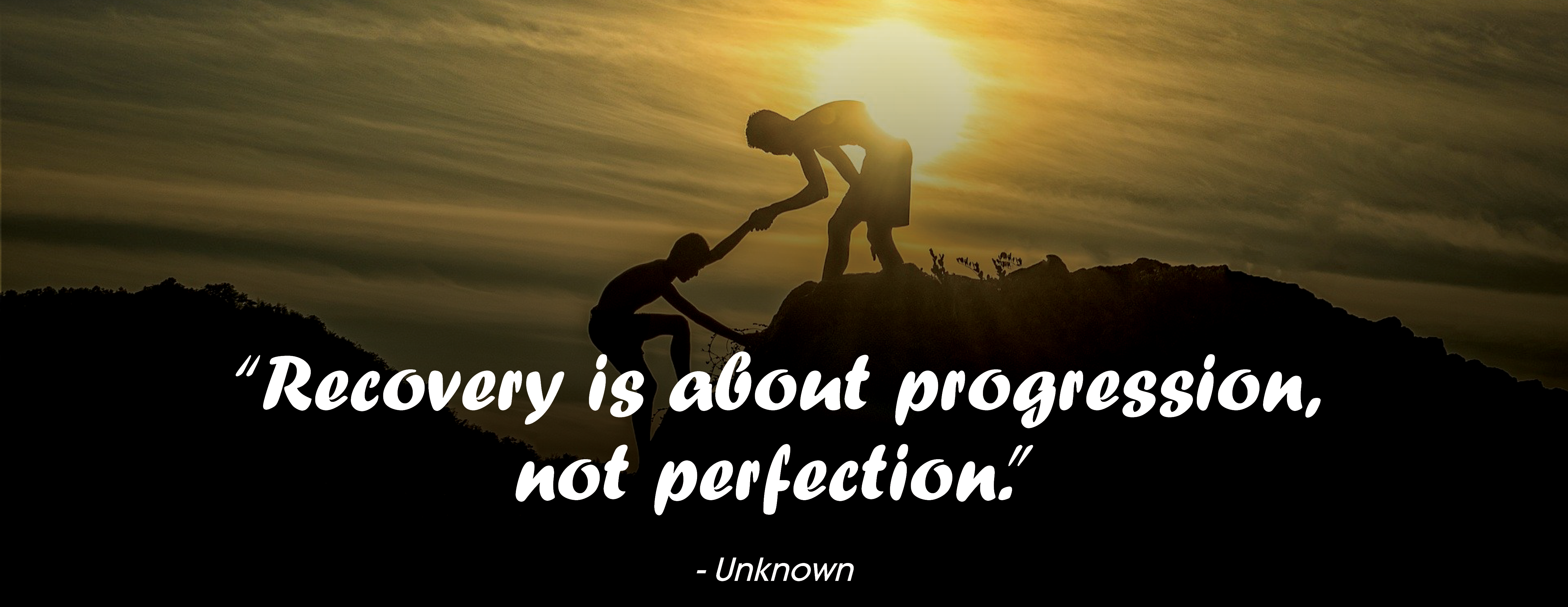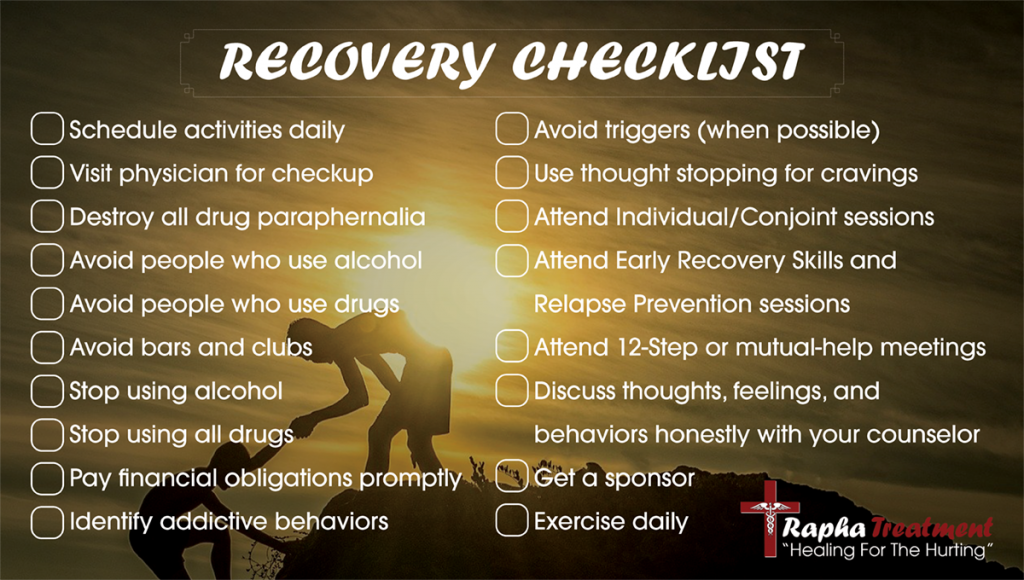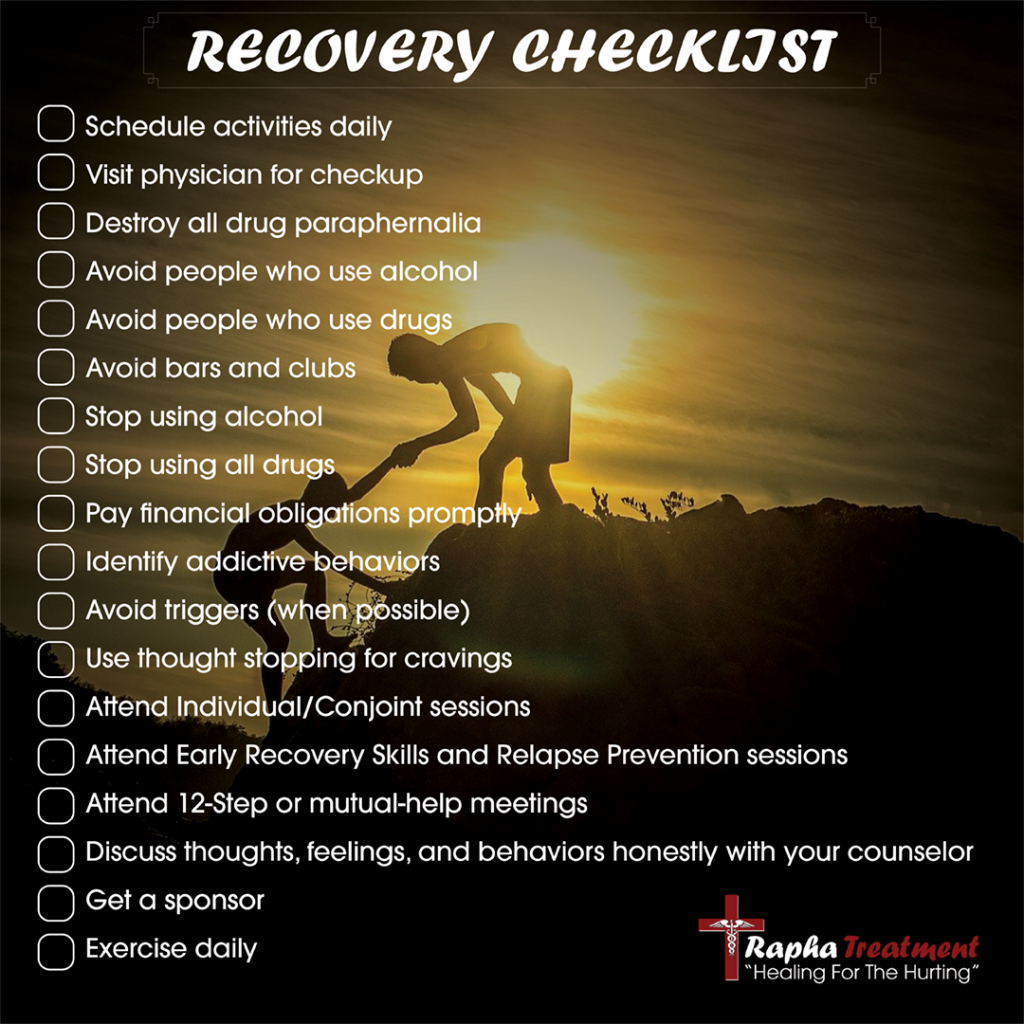
Self-care, accountability and support is the foundation of a successful recovery. According to the Substance Abuse and Mental Health Services Administration (SAMHSA) There are four major dimensions that support recovery:
- Health—overcoming or managing one’s disease(s) or symptoms and making informed, healthy choices that support physical and emotional well-being.
- Home—having a stable and safe place to live.
- Purpose—conducting meaningful daily activities and having the independence, income, and resources to participate in society.
- Community—having relationships and social networks that provide support, friendship, love, and hope.
While in recovery, it is important to surround yourself with healthy and supportive relationships that influence good decision-making skills and helps avoid temptation. It is also important to focus on your own well-being and health. Inpatient treatment requires a great deal of motivation and dedication, so It is important to change your old routine and habits and adapt to new behaviors.
Though it can be difficult and uncomfortable to change, having a purpose that will drive you towards the life you want in recovery is the key to continue the course. A great resource to keep you on track is a checklist, created by SAMSHA that can be beneficial in holding yourself accountable after leaving treatment:
Recovery Checklist After Inpatient Treatment:
[one_half]
- Schedule activities daily
- Visit physician for checkup
- Destroy all drug paraphernalia
- Avoid people who use alcohol
- Avoid people who use drugs
- Avoid bars and clubs
- Stop using alcohol
- Stop using all drugs
- Pay financial obligations promptly
- Identify addictive behaviors
[/one_half][one_half_last]
- Avoid triggers (when possible)
- Use thought stopping for cravings
- Attend Individual/Conjoint sessions
- Attend Early Recovery Skills and Relapse Prevention sessions
- Attend 12-Step or mutual-help meetings
- Get a sponsor
- Exercise daily
- Discuss thoughts, feelings, and behaviors honestly with your counselor
[/one_half_last][clear]
This check list is an excellent resource to aid those in recovery as well as help their families and friends understand the boundaries and triggers for those in recovery and support their life changes and decisions.
Download a printable version of this checklist, or one of the graphics below!



